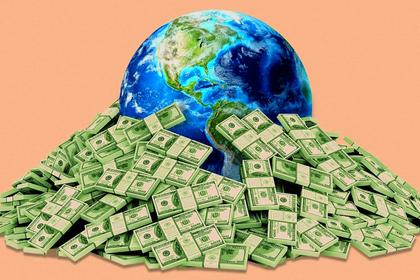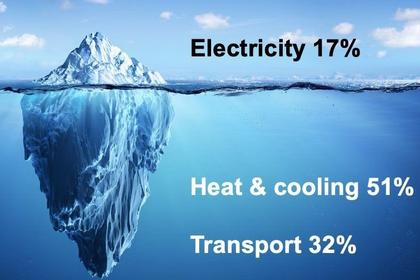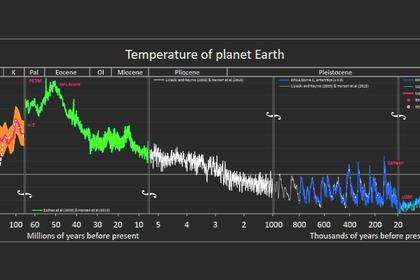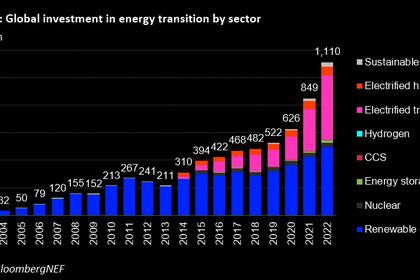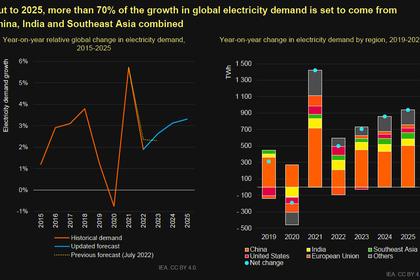
GLOBAL ENERGY TRANSITION & POVERTY
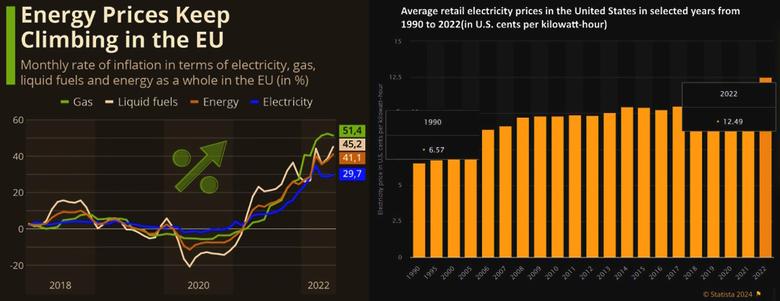
By ED REID Vice President, Marketing (Retired) / Executive Director (Retired) / President (Retired),
Columbia Gas Distribution Companies / American Gas Cooling Center / Fire to Ice, Inc.
ENERGYCENTRAL - Jan 2, 2024 - The promise of the transition from a fossil fuel energy economy to a renewable energy economy was and is lower energy prices and an improved environment. That promise is clearly broken irreparably. Energy prices have increased globally. Electricity prices have increased by the largest percentage in those jurisdictions in which renewable generation has made the greatest penetration. The resulting economic pain has begun erasing the altruism with which global populations approached the energy transition.
The population has been suffering “the death by a thousand cuts” until the cuts became sufficiently numerous and painful. Energy poverty has spread through industries heavily dependent on energy, resulting in the loss of jobs and the relocation of industries to countries more concerned about economic development than reducing carbon dioxide emissions. The loss of jobs combined with rising energy prices has caused energy poverty to spread to the general populations in the nations aggressively pursuing the goal of Net Zero by 2050.
Expensive government mandates regarding home heating systems, banning fossil fueled boilers in favor of heat pumps and moving toward banning of all fossil fueled appliances have imposed inconvenience and costs on residential and commercial energy consumers. These programs have stoked consumer resistance and inspired some back peddling by governments.
Government mandates regarding electric vehicles have imposed massive costs and losses on vehicle manufacturers. The limited availability of public vehicle charging stations has resulted in significant inconvenience for EV owners and diminished interest in EV ownership. Spontaneous ignition and explosion of EVs has also cooled customer enthusiasm and contributed to massive increases in EV insurance rates. EV inventories are building in dealer inventories, forcing price reductions and manufacturer decisions to reduce production to match demand.
The push to reduce meat consumption, replacing it with veggie burgers, “frankenmeat” and mass production bugs has made consumers aware of the extent to which their governments are willing to go to reduce carbon dioxide and methane emissions in the effort to control climate change.
The efforts of some EU governments to force agricultural land out of production and to forcibly reduce meat and dairy animal herds has spawned active resistance by both farmers and the general populations in those countries. These efforts are difficult to understand in context of concerns regarding food poverty.
Media coverage of suggestions that air travel be limited to four trips in a lifetime, that vacations be replace by “staycations”, that private vehicle ownership be limited in favor of public transportation and that people give up their suburban lifestyles in favor of living in “15-Minute” cities have raised awareness of and concern regarding possible futures.
There appears to be growing resistance to government efforts to restrict personal and corporate freedoms. There also appears to be growing awareness that achieving Net Zero by 2050 is not plausible and likely not possible without significant additional personal and societal pain. This awareness will likely increase resistance to the proposed transition.
Perhaps this will be the year when governments acknowledge the pain their climate change goals are causing and rethink their approaches to the energy transition.
-----
This thought leadership article was originally shared with Energy Central's Energy Collective Group. The communities are a place where professionals in the power industry can share, learn and connect in a collaborative environment. Join the Energy Collective Group today and learn from others who work in the industry.
-----
Earlier:


